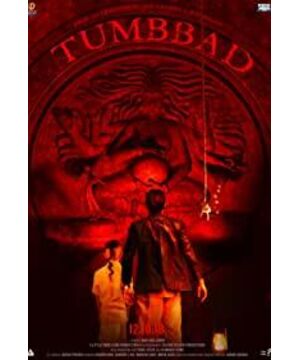Opium, famine, and colonies-a straightforward metaphor
Let me briefly talk about a conclusion that other people have mentioned. Hasta is the evil deification of the drug trade, and everything the male protagonist experienced is a historical fable of India's participation in the opium trade during the British colonial period. This has very obvious hints in this film: 1. The main story is all happening in India during the colonial period. 2. Opium trade licenses are mentioned many times. 3. The whole film ends in India's independence.
But I turned around, and most of the analysis and the history in the eyes of Indians are always slightly different, so I am here to provide a perspective that may be closer to the real India.
I have had some Indian classmates who have a good relationship, and happened to talk about this issue. According to their description, for a long period of time, India made a lot of money in the opium trade with China conducted by the British with India as a planting base, and because the British did not intend to maliciously dump opium into their colonies, India itself did not. Large-scale addiction caused by growing opium. But this does not allow India to stand alone in this sinful trade. Their "curse" is: extreme hunger, or a serious shortage of rations.
In the later period of the opium trade, densely populated India experienced several consecutive famines, the source of which was directly at the food cropping crisis caused by the opium trade. The upper-class landlords only paid attention to the huge profits brought about by poppies. Regardless of whether the farmers at the bottom were alive or dead, India had corpses all over the country from time to time until the British Empire ended its colonial rule, and India’s "poppy hunger" was ended.
This is a permanent scar for India, and they have always remembered it clearly.
If you understand this layer of history, it is not difficult to see that the flour man used to seduce Hasta in the film is a metaphor for India's limited agricultural output. The Indians used the agricultural output-poppy-in exchange for a limited amount of gold coins under the hands of the British, and became worshippers of the evil god.
By the way, this also makes all the discussions in various comments about how to increase the production of gold coins meaningless. How can the real great evil god of the opium trade (manually funny) make India earn more wealth from it? ? The rules of the colonists are absolute rules, and those who want to take advantage of it think too much.
Speaking of the characters in the movie, after the male protagonist’s family over-contributed the Flour Man to the greedy god Hasta, they themselves became hungry slaves. The more you deal with evil gods, the fewer people in your family, which is a white-drawn portrait of India that was hungry and perished at that time.
A more in-depth analysis, if you use this common Indian thinking to understand, many details of this film will make more sense.
For example, the neglected wife of the male protagonist may be a symbol of India's "old traditions of agricultural society." When land is occupied by greedy Indian landlords, even if the "old traditions" persistently want to return to the old path of agricultural society to get rich through food production, they will be coerced by the greedy landlord class to join the opium trade. And even if the greedy male protagonist completely relies on his wife's "traditional" production technology to survive, he contemptuously despises her, and instead indulges in the drunkenness brought about by his concubine's "indulgence".
For another example, at the end of the film, the male protagonist’s son gave up Hasta’s purse, which also shows that the next generation of India finally gave up the sinful opium trade dominated by the British Empire after leaving the British rule.
Compared with a fantasy movie, this film is more like a straightforward historical blockbuster.
———————
As a digression, I can actually feel from the narratives of my Indian classmates that, as Orientals, Indians actually had a certain degree of empathy for the Chinese who were trapped in the drug vortex at that time. This may be why the film is featured The reason why children are all money rattails—Before they were opened by strong boats and guns, China and India were both child-like agricultural societies. They obeyed the teachings of the "land" and "tradition" that they regarded as their mothers. There will be branches of greed. After being infiltrated by imperialism, both China and India fell into a desperate situation of greed that would be swallowed by human-eating monsters at any time.
But we can also see from this film that the Indian director had no intention of spending any time accusing the British Empire as the chief culprit of the opium trade, and focused his reflection on his own greed and departure from tradition. Well, how to say, this idea, Perhaps it is very Indian.
View more about Tumbbad reviews










